In summer 2024, from July 8-20, the Center for Advanced Study in the Behavioral Sciences (CASBS) at Stanford University will welcome the sixth cohort of its institute on “Organizations and Their Effectiveness.” The purpose of the institute is to achieve a fundamental advance in the academic discussion of organizations, and organized activities more generally, fueled by cross-disciplinary conversations, friendships, and collaborations.
The institute, launched in 2016, revived a storied legacy and history of foundational scholarship in the field of organization studies conducted at the Center by CASBS fellows and others.
Institute participants are young scholars (ranging from late-stage graduate students to advanced assistant professors) whose careers studying organizations are underway, and who have demonstrated an interest in and an aptitude for expanding their thinking about organizations, embracing other fields and methodologies. An essential component of the institute is that it is cross-disciplinary; it brings together a cohort of highly promising young researchers from a wide range of fields and universities.
From a large pool of competitive applicants, co-directors Bob Gibbons (Sloan School of Management and Economics, MIT) and Woody Powell (Graduate School of Education and Sociology, Stanford) are pleased to announce the 2024 participants.
2024 CASBS Summer Institute: Organizations and Their Effectiveness
Participants
Meredith Dost
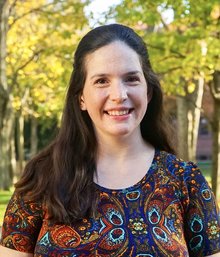
Hi! I am currently a National Poverty Postdoctoral Fellow at the Institute for Research on Poverty at the University of Wisconsin-Madison, in residence at the Office of the Assistant Secretary for Planning and Evaluation (ASPE) in the U.S. Department of Health and Human Services (HHS). I earned my PhD in Government and Social Policy from Harvard University in 2023. In my research, I investigate how bureaucratic effectiveness, or the lack thereof, perpetuates all types of inequalities in the United States. My book project, based on my dissertation research, focuses on the political implications of administrative burden, focusing on the administration of Medicaid. On a more personal note, I am passionate about working with undergraduates--and I miss it dearly. As a graduate student, I spent a lot of time advising and mentoring undergraduates as an academic advisor and while living among the undergraduates as a resident tutor. In addition to studying all types of organizations from many perspectives at the CASBS summer institute, I'm sincerely looking forward to getting to know folks as we learn alongside each other.
Brian Libgober
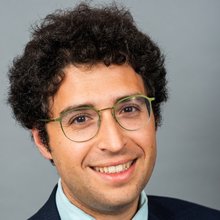
Brian Libgober is a political scientist and legal scholar. His research focuses on US political economy, with a special emphasis on the making of regulations by executive agencies. Thematically, he is interested in the relationship between economic inequality, interest group power, and the design of legal institutions. Since 2022, Brian has been an Assistant Professor of Political Science and Law at Northwestern University. He is also a Senior Research Scholar at Yale Law School. Previously, Brian was an Assistant Professor at the University of California, San Diego and a postdoctoral fellow in Political Science at Yale.
Shelley Liu
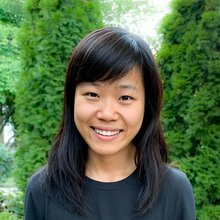
I am an Assistant Professor of Public Policy at Duke University. Broadly, my research focuses on the relationship between citizens and states interact at the community level, and how nonstate actors mediate the citizen-state relationship. My first book, "Governing After War: Rebel Victories and Postwar Statebuilding,” examines how rebel groups organize themselves, transition into government, and engage in state-building after they win war. My other research projects explores post-conflict development, information access in authoritarian regimes, and citizen agency within state-building projects.
Daniel Lobo
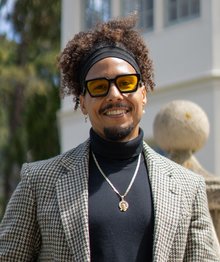
Hi! My name is Daniel Lobo and I am a PhD student in sociology at UC Berkeley, with specializations in political economy and the sociology of organizations and markets at the Haas School of Business. I’m originally from Boston, MA and earned my BA in social studies from Harvard College. As a cultural and economic sociologist, I am interested in the fundamental question of, who gets what and why in our society? More specifically, I am interested in how individuals experience organizations intersubjectively and behaviorally. How is talent conceptualized, discovered, selected, evaluated, compensated, and promoted to positions of power? How do organizations, especially elite organizations, thus mediate the broader social, political, and economic processes that constitute a global society of white supremacist capitalist patriarchy? To date, most of my research has been on disparities in undergraduate data science education. I also have a project at the intersection of race and political economy (R&R at APSR) that advances a theory regarding how and why divergent perceptions of fairness among Black and white Americans lead to differences in attitudes toward U.S. trade policy. My dissertation research, tentatively titled “Towards a theory on the causes, contours, and consequences of culture add (as opposed to culture fit) hiring in elite firms,” will use experimental methods to determine the extent to which this new talent selection paradigm may or may not reduce labor market inequality. Outside of academia, I enjoy hiking, lifting, traveling, live music, meditation, community-based events, and spending time with loved ones. I identify as Black, queer, and of the working class. I am also a first-generation American and college graduate.
Federico Masera
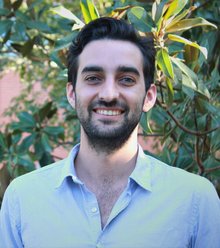
Federico Masera is a Senior Lecturer at the School of Economics of the University of New South Wales in Sydney. His research has focused on the economic and cultural determinants of antisocial behavior. His works include analysis of how state policies can affect antisocial behavior like crime, religious extremism, support for terrorist organizations and violence. His most recent research studies the determinants of racially conservative politics and how political organizations help to spread and maintain these ideologies.
Virginia Minni
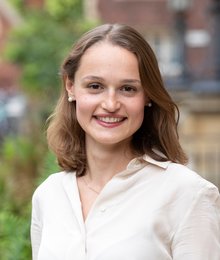
Virginia Minni is a Postdoctoral Fellow at the Institute for Fiscal Studies. She will join The University of Chicago Booth School of Business as an Assistant Professor of Economics in July 2024. Her research focuses on questions in labor, organizational, and development economics. She collaborates with large organizations to study why some people reach their potential in the labor market while others do not, to identify the frictions that prevent this, and explore how to alleviate them. Virginia received her PhD in Economics from The London School of Economics. She enjoys biking, gardening, yoga, and learning about discoveries in any field of study.
Liz McKenna
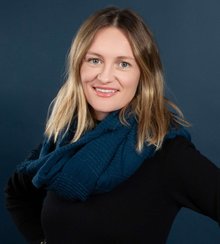
Hello! I am thrilled to be a part of this year’s Summer Institute. I’ve been eager to attend since I was in graduate school at UC Berkeley (PhD in Sociology, 2020). I am now an Assistant Professor of Public Policy at the Harvard Kennedy School. My research is broadly concerned with how civil society can both enhance and undermine democracy. I chose sociology as my discipline because I wanted to study why some forms of collective action are so much more effective at building and wielding political power than others. My interest in these questions stem from my first work experiences out of college, which were as a political organizer in rural Ohio (on Obama’s 2008 campaign), and then as a community/labor organizer with an economic solidarity cooperative in Rio de Janeiro. I’ve co-authored two books on democratic organizing and am finishing up a third on democratic backsliding in Brazil. For this latter project, based on my dissertation, I conducted four years of fieldwork while based out of São Paulo, where my son Leo was born in the early days of the pandemic. I come from a large, quirky Irish family on my dad’s side and true California hippies on my mom’s: my maternal aunt was an original Merry Prankster and my uncle drew the art for Ken Kesey’s “electric Kool-Aid acid tests.” I look forward to meeting everyone at “orgs nerd camp” in July!
Jennifer Nelson
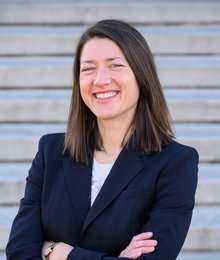
Jennifer is a sociologist who studies people in organizations, specifically how aspects of workplace environments – such as management practices, compositional factors, change initiatives, and spatial arrangements – contribute to workplace inequality, both in employee experiences and outcomes. A former public high school teacher, she was first drawn to the study of teachers’ working conditions and turnover. Through this early work, she became particularly interested in collegial dynamics and the meso-level sources that shape them, such as organizational demography and perceptions of organizational justice. She has used ethnographic, social network, and administrative and employee survey data to investigate the relationship between collegial dynamics and workplace inequality. She is currently Assistant Professor at the University of Illinois Urbana-Champaign; previously, she was an IES postdoctoral fellow at Vanderbilt University. Outside of work, she enjoys endurance running and reading fiction.
Paula Onuchic
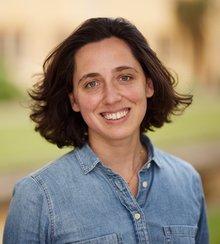
My name is Paula Onuchic, I received my PhD in Economics from NYU in 2021 and am now completing a postdoc at Nuffield College, in the University of Oxford. I was just on the economics academic job market, and should have news about my future affiliation very soon. I grew up in Brasil, very close to a large extended family where the typical career path is to be a competitive swimmer when young, and somehow slide from swimming into academia later on. Although many of my family members are in academia, there are no other economists or social scientists of any kind. Outside of work, I like spending time at home dabbling into various artsy pursuits: I’m an avid fiction reader, occasionally paint watercolors, make collages, etc. So far, I haven’t exhibited any great talent, but I like to think that life is long and I might one day be a swimmer turned economist turned artist.
Jonas Radbruch
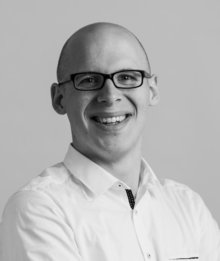
My name is Jonas Radbruch and about a year ago, I started a new chapter as an Assistant Professor in Berlin at Humboldt University. Before this, my journey included a job as a PostDoc at the IZA (Institute for Labor Economics) in Bonn, after completing my PhD at the University of Bonn. My research interests are rooted in behavioral economics, particularly as it applies to organizational, educational, and labor contexts. For example, I am fascinated by social comparisons and the pervasive influence of others, which is one of the themes that frequently surfaces in my work. I am a native of the Ruhr area but have moved between the west and east of Germany, currently living in a suburb of Berlin with my partner and our two children. Outside of academia—and when I'm not spending time with the family—I find joy in cooking, enjoying coffee, engaging in sports like cycling, soccer, and recently also badminton. I look forward to meeting everyone in the summer and the many conversations and discussions that lie ahead of us.
Hunter Rendleman

I am a PhD candidate in Government at Harvard University and a James M. and Cathleen D. Stone Ph.D. Scholar in Inequality and Wealth Concentration at the Harvard Kennedy School. My research examines how the organization of the United States’ political institutions influences the political behavior of the country's racial minorities and individuals from marginalized backgrounds. My dissertation examined the behavior of Black state and federal legislators, using a mixed methods approach relying on interviews and techniques for causal inference to better understand why some environments give rise to displays of racialized behavior and their implications for these legislators’ efficacy. My post-dissertation work studies how the organization of Congressional offices produces better or worse outcomes for the representation of minority constituents and further seeks to understand how working in government informs the attitudes and behavior of bureaucrats in their workplaces. I’m originally from the Bay Area and love to cook, surf, and travel. I look forward to learning from everyone at the Summer Institute!
Georg Rilinger
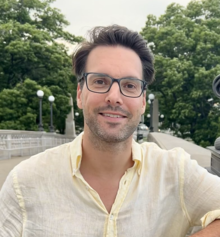
I am a junior faculty member in the TIES group at Sloan. My research focuses on topics in economic sociology, particularly on issues to do with social engineering in the digital economy, the role of expertise in government, the creation of markets and regulatory failure. In recent work I have focused on practical obstacles to the success of market design, the theory of secrecy, the role of economic experts in governmental processes, and the theory of regulatory capture. More broadly, I am interested in the question of how undesirable behavior emerges and persists in different market contexts. One of my guiding hypotheses is that organizational dynamics become increasingly important for the way that markets operate and fail. Beyond my work, I can get interested in almost anything. I particularly love the free exchange of ideas over a shared dinner among friends from different disciplines. When I have time, I am an avid reader of fiction from a variety of genres, including the classics, social critique, SciFi, fantasy, and thrillers. Originally from Germany, my wife Katrin, our son Arthur and I live in the heart of Cambridge, where we have built our social life around a small bubble of expats and scholars.
Lucienne Talba
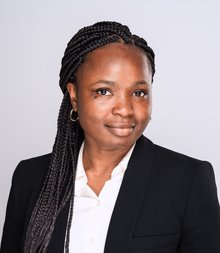
I am a postdoctoral fellow at the Institute for Gender and the Economy (GATE) at the Rotman School of Management, University of Toronto. I graduated from the University of Montreal in 2020 with a Ph.D. in economics. Before starting my doctoral study, I worked in Cameroon for the government as a senior economist. My research interests lie at the intersection of development economics, gender economics, economic history, and digital economics. In my research, I examine how access to and adoption of different technologies may affect gender roles and cultural values.
Andrea Wessendorf
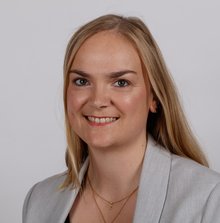
I am an Early Career Fellow at the University of Edinburgh Business School. I earned my PhD in Strategic Management from the University of Cambridge. My research focuses on social inequality in the workplace. Specifically, I seek to advance an occupational lens on social inequality. To do so, I draw on ethnographic and field-based methods to understand how patterns of advantage and disadvantage are reproduced in the workplace despite the growing attention to diversity, equity, and inclusion, and what organizations can do to overcome them. Moreover, I have developed an interest in how organizations respond to unforeseen crises and how such responses may change or perpetuate existing patterns of inequality. In my research, I have predominantly studied professional service organizations and firms, such as hospitals and law firms. Prior to my Academic career, I worked as a member of the European management team of an international corporation. In my spare time, I enjoy learning to surf and to play chess.
Janet Xu
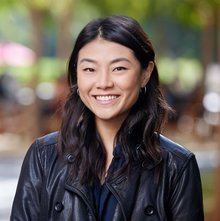
I am an assistant professor of macro organizational behavior at Stanford Graduate School of Business. My research examines how concepts like “identity” and “diversity” are portrayed and evaluated in organizations and markets. Specifically, my current work focuses on 1) the effects of diversity practices on individual-level career outcomes and selection into organizations, 2) strategic presentations of self, and 3) the role of status beliefs in evaluation processes. In other projects, I have studied the social construction and interpretation of population statistics. I use an assortment of quantitative methods but specialize in experimental methods and survey design. Outside of research, I enjoy rock climbing, watching movies in theaters, and just about any variety of French fries.
Organizers
Bob Gibbons
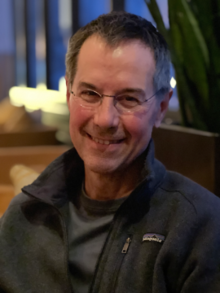
I guess I am an organizational economist. I definitely am interested inorganizations, as well as in other interactions that are organized (even if not occurring within a single organization). And I use game theory to guide my thinking, so that must be related to economics; on the other hand, it has been so long since I have drawn supply and demand curves that I truly can neither recall nor deduce whether price or quantity goes on the x-axis of such graphs!
I am tempted to say that what I am interested in is “visible hands” (Chandler, 1977), but I’m not sure I could define that term, except to say that I am not interested in the invisible hand. Another description I sometimes use is that I wake up asking “What can an economist do to help a fixed set of people collaborate?” In 2015, at a lunch table on the CASBS patio, my friend Steve Barley (a sociologist) heard me ask that and answered “An economist cannot do any such thing and so should leave!” Still, here I am.
Woody Powell
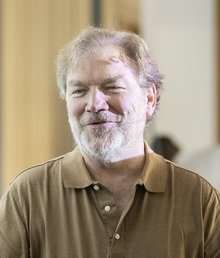
I am a sociologist by training and mostly continue to identify as one. I work on networks and on institutions, though when I hang out with network people, I wonder where the culture is, and when I hang out with institutions folks, I start freaking out about the absence of relationships. I have been teaching at Stanford for 25 years. Before that I was at U. of Arizona, MIT, and Yale. Bob and I have been orchestrating the summer institute since 2016, and it has been one of the most rewarding experiences of our careers. We get to meet and learn from remarkable young scholars, and we invite a new cast of guest chefs every year. My hobbies include collecting antique maps that disrupt our sensibilities about nations and borders. You can see two great ones in my study, #13, this summer.
Zachary Ugolnik

Zachary Ugolnik is the program director at CASBS. He directs a portfolio of multi-year projects to strengthen democratic governance, embed ethics in technology, and ensure sustainable livelihoods, including the summer institutes. Zachary earned his PhD from Columbia University, his master’s from Harvard University, and his BA from the Maxwell School of Citizenship and Public Affairs at Syracuse University. His work has appeared in Dædalus (with Margaret Levi, Winter 2023, and forthcoming 2025), Journal of Religion, Religion & Literature, and Harvard Divinity Bulletin, among other print and online publications. His book The Collective Self, is currently under review. He has taught courses in ethics, religious studies, and philosophy at Mount Allison University, where he served as an Assistant Professor, and Columbia University, where he served as Mellon Interdisciplinary Fellow at the Interdisciplinary Center for Innovative Theory and Empirics (INCITE).
Bob and Woody are grateful to the many supporters of the institute, among them Stanford University's Graduate School of Business, members of the CASBS board of directors, the National Science Foundation, MIT, the Judge Business School at the University of Cambridge, and multiple other supporters at Stanford University — including the Vice Provost & Dean of Research, the Hoover Institution, and the Stanford Institute for Economic Policy Research (SIEPR).
